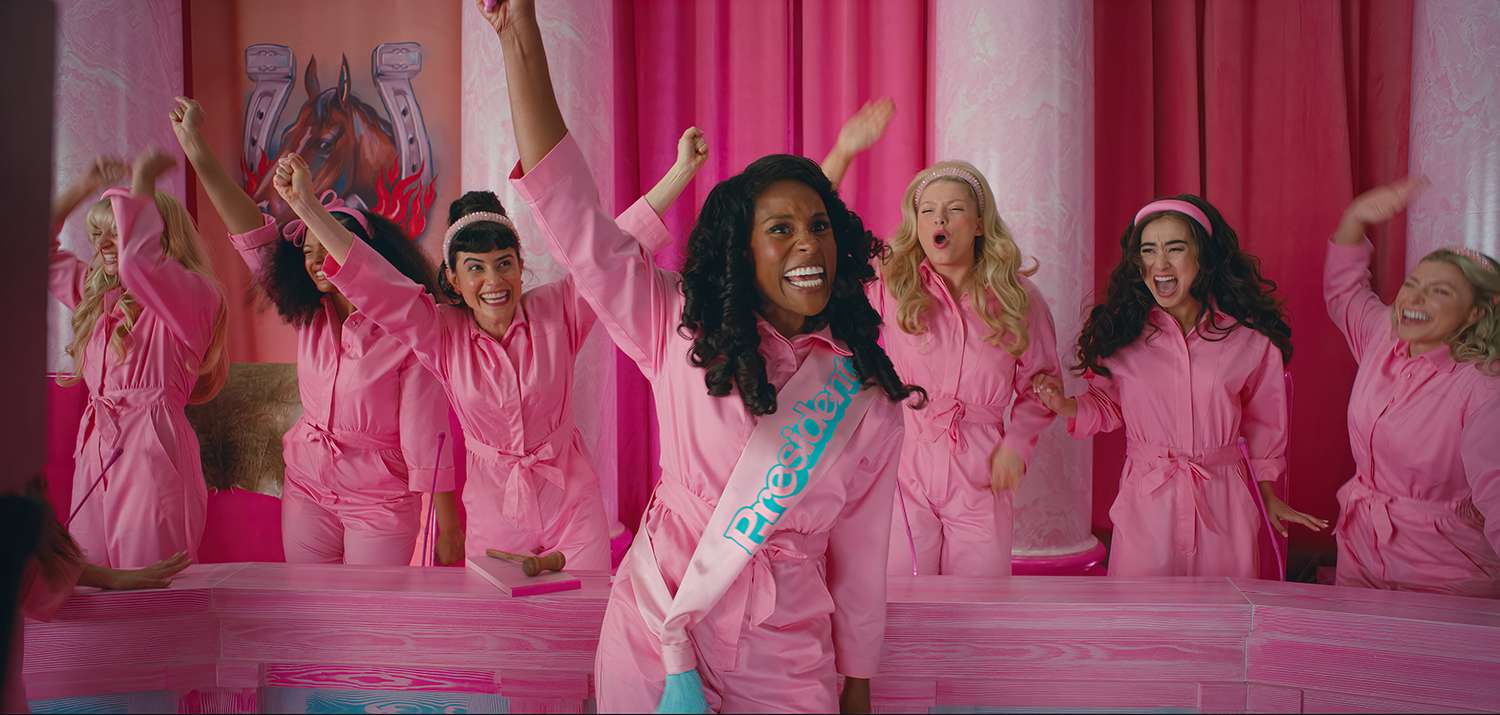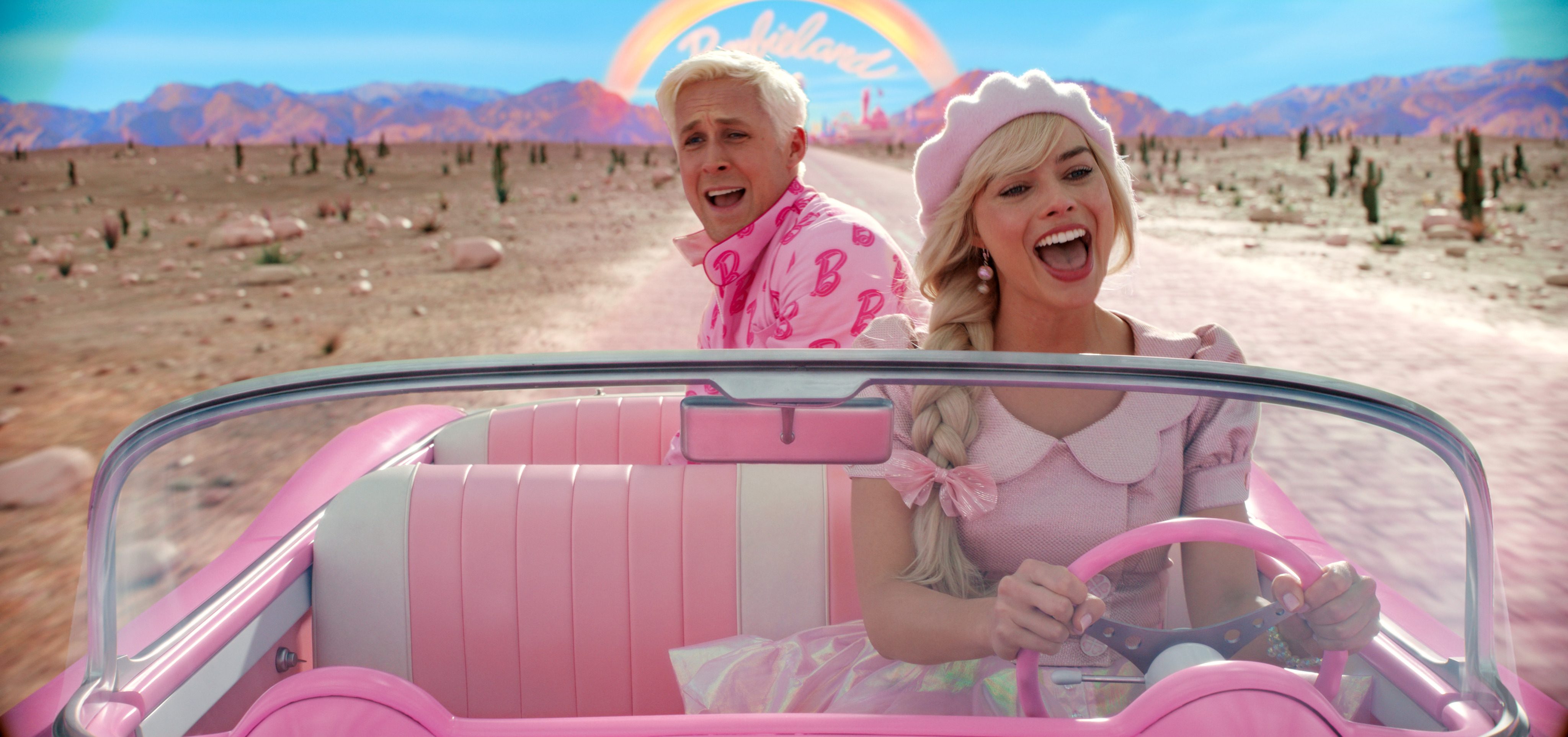The release of Greta Gerwig’s ‘Barbie,’ starring Margot Robbie and Ryan Gosling, has sparked significant interest in the Arab region and on social media. Through its thought-provoking narrative and compelling characters, the movie challenges societal norms and redefines gender roles in today’s world. In the midst of the excitement and buzz circulating around its release, its ban in several Arab countries like Kuwait, Algeria, Morocco, and Lebanon has received mixed reactions. Other countries like UAE and Saudi Arabia had announced they were banning it as well then retracted the ban and postponed its release date to August 31, the delay may be due to content issues of certain scenes. Some criticize it as an infringement on freedom of expression, while others argue it is necessary to protect traditional values. Please keep in mind that this review is based on a censored version which was screened in Egypt.


The concerns over the film screening in the Arab region were mainly due to cultural conservatism. Some of the film’s progressive themes, may not agree with traditional values in the region. It is crucial to acknowledge that the decision to ban the film may be influenced by complex factors, including religious considerations, cultural sensitivities, and the desire to protect society from certain ideologies. It’s just a matter of understanding that different cultures, ideologies, and beliefs don’t correspond to those of the Western world. This is a film mainly targeted at kids, and although Barbie is a relatable character to many young Arab girls, some ideas in the film may not align with those in other parts of the world, and that’s just the beauty of having diverse cultures.
It is essential to consider the cultural framework of the Arab world. While the Arab region comprises diverse nations, they have similar values and beliefs, and there are common threads in societal expectations surrounding gender roles for both men and women. The gender roles in the Arab world may allocate different yet equally important roles and responsibilities for women and men. The Barbie film goes beyond breaking stereotypes by redefining traditional gender roles. It showcases a world where gender roles are fluid and non-restrictive. The film challenges the notion that certain qualities or occupations are exclusively linked to a particular gender. This world portrayed in Barbie Land, where women and men are equals, and women even hold the majority of influential positions like being presidents and not having to fight for their rights, does not exist anywhere on earth. Barbie Land shows us a fascinating world in which gender roles are switched and women lead the world. But as Barbie ventures out into the real world she realizes thats not the case.


One of the most commendable aspects of the film is its unapologetic dismantling of traditional gender stereotypes. The movie portrays Barbie as a multifaceted character who defies expectations and ventures beyond the confines of traditional femininity, showcasing her diverse capabilities. Barbie can do it all! She went to the moon in 1965, 4 years before men even landed. In the film, she appears as a US president, a Nobel Prize-winning physicist, a Supreme Court Justice, and even a mermaid. She’s not just a pretty face, but a strong, independent individual who embarks on a journey of self-discovery and empowerment.


As the film explores Barbie’s desire to break free from the burden of perfection and societal expectations, it sends a powerful message that girls and women should not be confined to predetermined roles but should instead be encouraged to pursue their dreams, challenge norms, and embrace their true selves. By doing so, the movie promotes the idea that femininity is not limited to a singular definition but is a diverse and inclusive spectrum.


Despite the challenges of the release of the film in certain Arab countries, every Arab girl can relate to Barbie’s journey of self-discovery. Barbie’s character evolves from an embodiment of perfection to someone who acknowledges the unrealistic standards and societal pressures placed upon her. This relatable struggle resonates with Arab girls worldwide, as they too face societal expectations and the desire to conform. Barbie’s transformation symbolizes the importance of individuality, self-acceptance, and embracing imperfections. As an Arab girl, there’s so much pressure to have a successful career, look good all the time, take care of household chores and family, have a balanced social life, be extraordinary, be spiritual, find a partner, be influential in your community, and the list goes on. We’re expected to do all that without complaining. America Ferrera’s character, who’s a real woman with real-world issues, gives a touching monologue emphasizing how difficult it is to be a woman in today’s world. Barbie does all that and makes it look effortless, setting the bar too high for real girls, but then realizes that these standards are unrealistic, even for her. She eventually chooses to be a real woman who makes mistakes and gets cellulite rather than live up to the high expectations to be perfect in Barbie land.


In the film, Ken’s portrayal as an accessory to Barbie challenges traditional gender roles in both the Western and Arab world, as Barbie’s character overshadowed Ken, relegating him to a secondary role. By representing Ken’s search for purpose, the movie celebrates the idea that both Barbie and Ken complement each other, fostering mutual growth and individual fulfillment. Barbie brought to our attention the fragility of males and the reinvention of gender roles in Barbie Land vs. the real world. Ultimately, the film does not provide a solution for Ken except that he should embrace and enjoy being a real person, try to find a purpose in life and accept the fact that Barbie Land doesn’t revolve around him. Ken is still just Ken in the end; he didn’t get much, not even his own house or anything. This parallel reflects how women did not achieve their rights overnight; they had to fight for them over many years.
Overall, ‘Barbie’ is a heartwarming cinematic experience that combines laughter and a few tears. It possesses the remarkable ability to unite women from all walks of life, empowering them in the process. Although the ban of the film in certain Arab countries is understandable due to it’s extreme progressives and the desire to protect society from certain ideologies, the underlying themes of exploration of self-discovery, embracing imperfections, and challenging unrealistic standards resonate deeply with women in the Arab world. Barbie’s personal growth serves as an inspiration, encouraging girls to forge their own unique paths and defy the societal pressures that surround them, while the portrayal of Ken’s search for purpose exhibits an interesting outlook on gender roles.
WE SAID THIS: Don’t Miss…Akram Hosny’s Cinematic Comeback, ‘El Ameel Sefr’: A Refreshing Comedy Of A Zero To Hero



